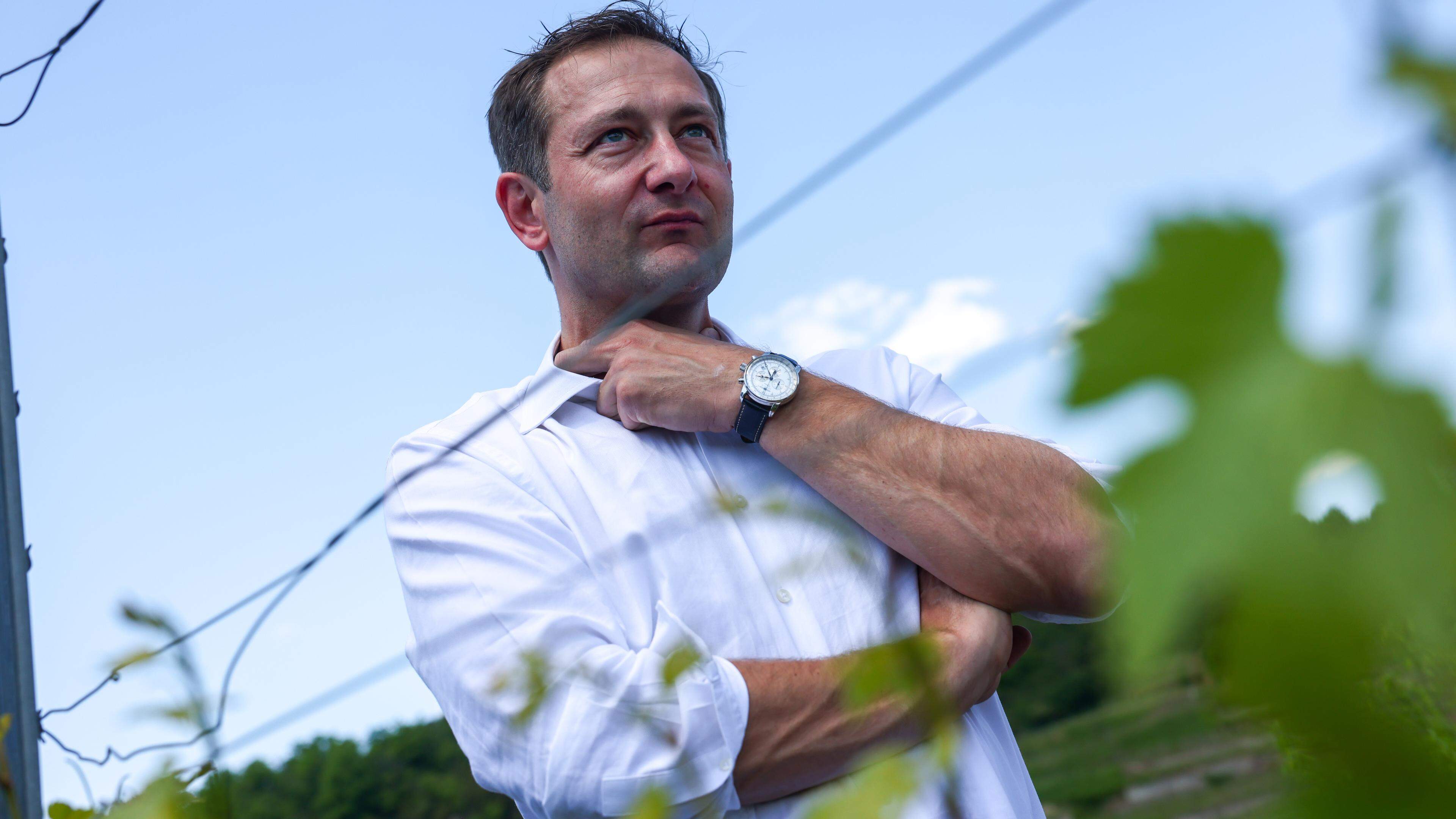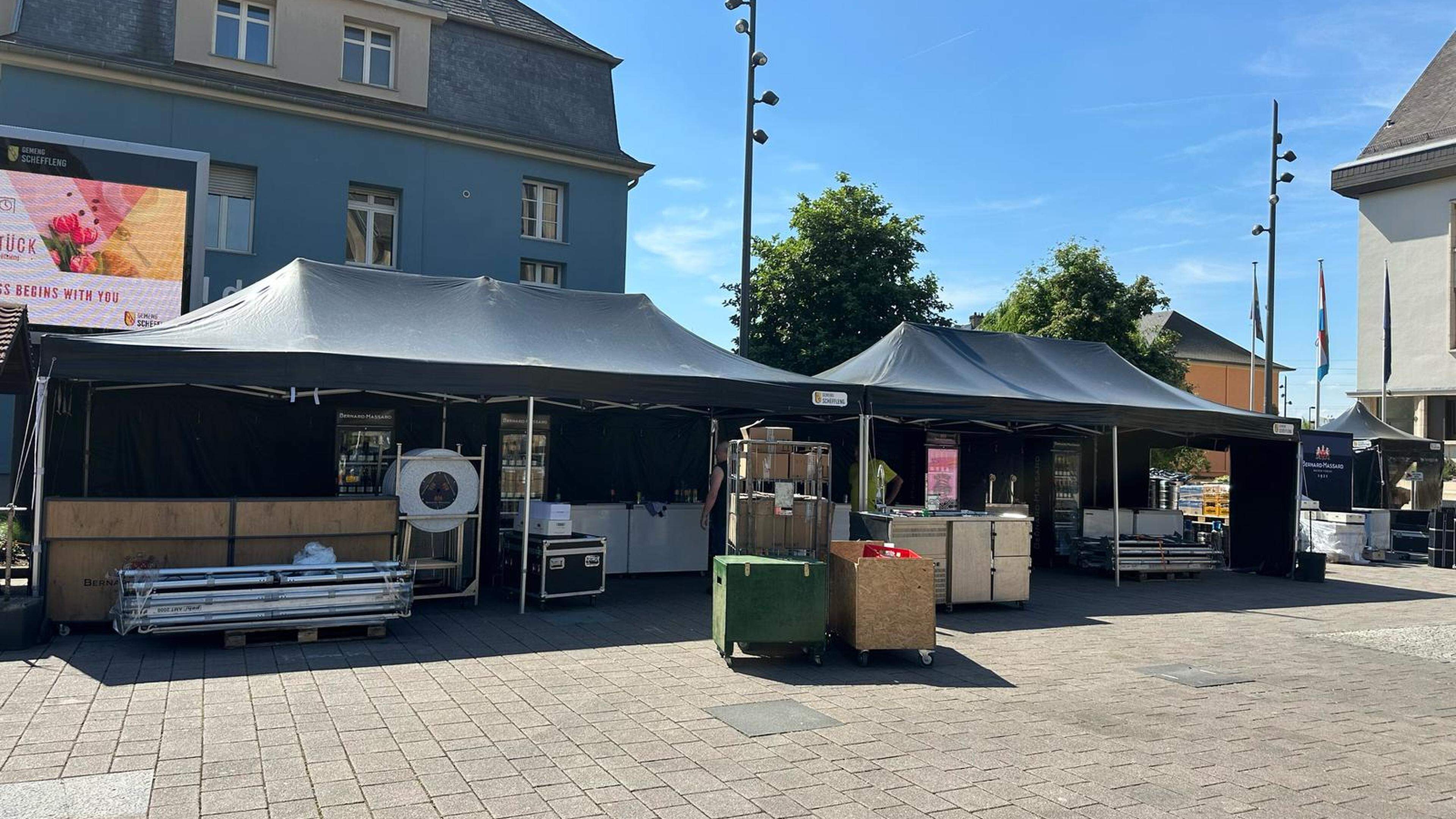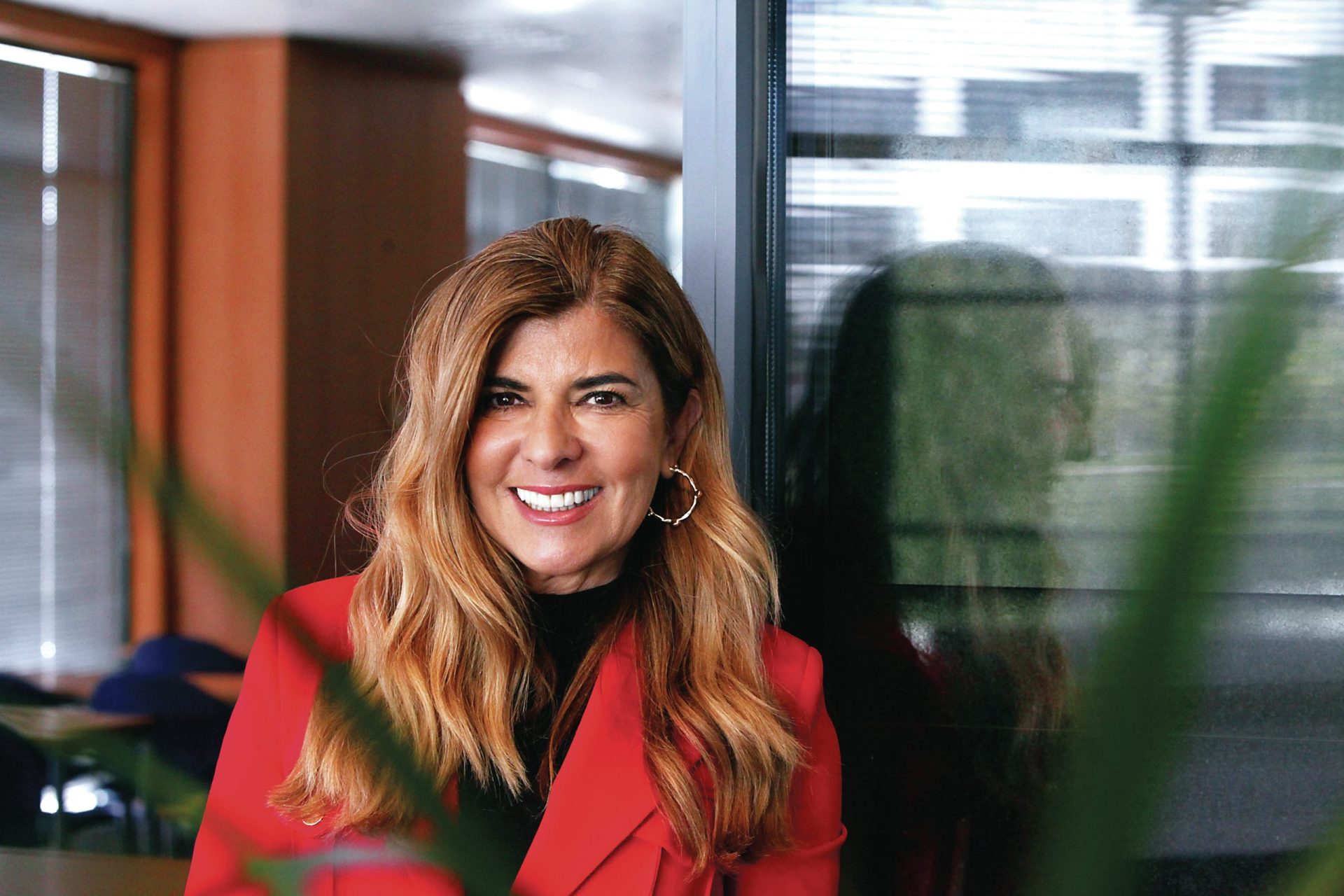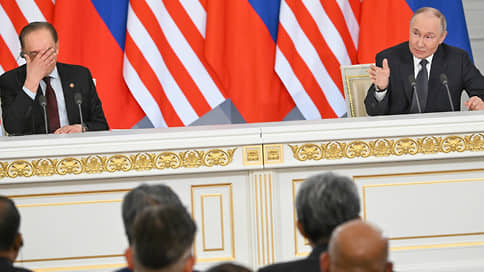Christophe Hansen starts his great reduction in bureaucracy

On the sunny Tuesday in the Ahner vineyards in the east of the country, one could almost think that Christophe Hansen (CSV) had a real dream job.
At mild 20 degrees, he strolls, accompanied by Agriculture Minister Matine Hansen, who is also his cousin, along the Konsbrück family’s vines. They talk kindly talk: If the vines belong to 200 meters away, which wine grows here and how to de -alcoholic wine. The scene looks like a joyful family reunion.
Christophe Hansen cannot calm the Luxembourg farmers
Hansen makes a casual impression in his wrinkled white shirt with rolled up sleeves. While he listens to Konsbrück when talking, he supports himself on a wooden post and understands how someone who does not hear the stories that the winemaker has to tell for the first time.
The EU agricultural commissioner in conversation with winemaker Jeff Konsbrück (right) about the peculiarities of his company. Photo: Gerry Huberty
No wonder: Hansen has been touring all over Europe for a few weeks. He is said to have already visited 14 Member States. After his inauguration, he wanted to understand what was lovingly called « de Secteur » in Luxembourg. What Konsbrück is depressed, he has had to have heard hundreds of times lately. « Most things that have been thrown at me are no problems of agricultural policy at all. They are sanitary rules, national regulations or environmental regulations, » emphasizes Hansen that day.
The pressure on agriculture continues to grow
The impression of the « Dolce Vità » of an EU commissioner who commutes through Europe and, carefree, can indulge in the enjoyment of the diverse local products of the EU, and fussed farmers with a friendly grin.
Agriculture is under pressure across the EU. Only there was the peasant protests a year and a half ago. Then you looked for a compromise with the farmers – that was not enough for many. Now there is also the Mercosur trade agreement that farmers don’t want. In short: Christophe Hansen may seem relaxed, he is not inside.
Who belong to the vines in the area, the asked Christophe Hansen (m.) And his cousin, Minister of Agriculture Martine Hansen, often on Tuesday in Ahn. Photo: Gerry Huberty
Because the CSV man now has to deliver exactly what he has promised as an EU agricultural commissioner since taking office: reducing bureaucracy-massive.
Five-year rule for grassland is raised to seven years
On Tuesday, the agricultural commissioner not only used the good weather to get in touch with the local producers in Luxembourg. He also visited his home country because of an audience at the Grand Duke. Above all, however, Hansen took the opportunity to present advertising for his new package for bureaucracy in agriculture with the journalists before he officially presented it in Brussels on Wednesday.
He emphasizes several times that it is not a « deregulation » package, but actually a « simplification » package.
There are people who have interpreted the measures differently.
Christophe Hansen (CSV)
EU agricultural commissioner
The document that Hansen explained to the press representatives on Tuesday is completely new. Some time ago it was leaked by a media platform. And the first reactions on this were tough: Hansen was accused of boxing through the reduction in bureaucracy in agriculture by watering down environmental standards. « There are people who have interpreted the measures differently, » he defends himself.
For example, there would be the five-year rule for grassland: if a arable land is overgrown with grass and is not managed for over five years, the meadow is then officially considered a grassland. This often means loss of value for the farmers because they are no longer allowed to pretend this grassland. Hansen now wants to raise the five years to seven. The regulation is also referred to as « Glöz 1 »: basic requirement for agricultural activity.
« This is how we not only meet the farmers, but we are making a contribution to better nature and more environmental protection, » Hansen claims.
Organic should be considered « green by definition »
In the package, the environment should also benefit that organic farming is freed from the conditionality requirements because it is considered « green by definition ». It is freed from additional evidence obligations.
How the farmers finally want to achieve their long -awaited goal
Simplifications should also take place in « Glöz 2 » regarding bogs and wetlands. If the national provisions on their preservation are equivalent to European standards, farmers are freed from duplicate bureaucracy.
Package could come into force in early 2026
Hansen also announced that he wanted to raise the maximum limit for payments to small producers from 1,250 to 2,500 euros. This is a voluntary income support for small businesses on the part of the Member States, which can be paid for, for example, per hectare.
Sudden U -turn: Peace agreed to Mercosur – Hansen surprised
In addition, small businesses should also be able to participate in Eco schemes. These are voluntary environmental measures for which farmers in the EU get additional money if they manage their areas particularly environmentally and climate-friendly. So far that has not been the case.
The agricultural commissioner also announced a simplification of access to aid for the development and digitization of the company. The aid should include up to 50,000 euros. In addition, Member States should now put more money on the side to ensure hardship cases in agriculture. EUR 250 million is currently planned in the event of droughts or floods. « But that is not enough, » says the commissioner.
Hansen tried an alcohol -reduced wine on Tuesday. Photo: Gerry Huberty
Hansen now hopes that the EU agricultural ministers can quickly agree on the package and the legislative process will be accelerated by the EU Parliament. Then the measures could take effect in early 2026. For the companies, the package could mean a financial relief of 1.58 billion euros annually, emphasizes the agricultural commissioner. For the national administrations, it could have up to 210 million of savings of administrative costs.
Another relief package for agriculture will follow at the end of the year. In this, Hansen wants to reduce the number of operational controls at once a year. This package « will feel the farmers even more than the current one, » Hansen is optimistic.







